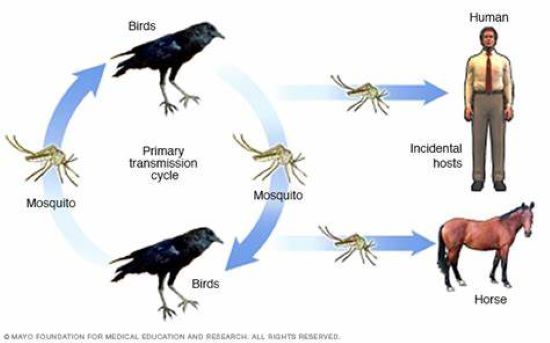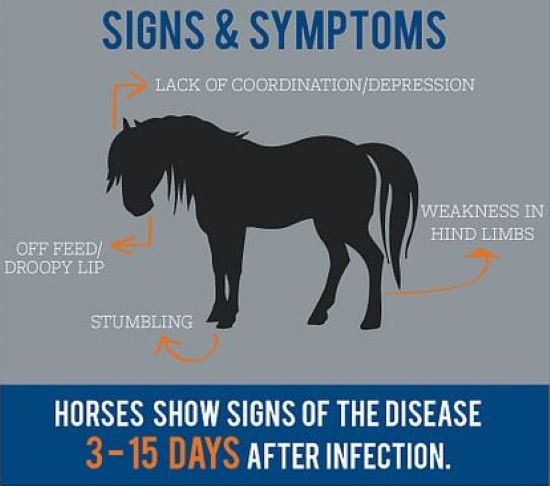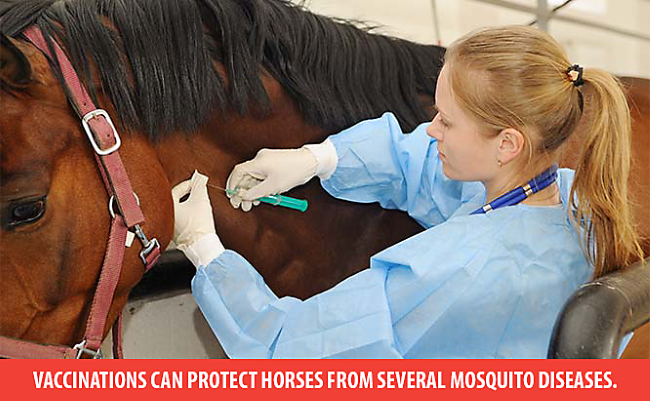Are Your Horses Protected Against West Nile Virus?
West Nile Virus (WNV) is a mosquito-borne virus. The effects of the virus in horses can range from mild to potentially fatal inflammation of the brain. While most horses do recover, some experience long-term effects. West Nile Virus (WNV) is transmitted to horses through the bite of an infected mosquito. Horses cannot transmit WNV to other horses, birds, or people.

Per the Nebraska Department of Agriculture, the signs and symptoms of West Nile Virus in horses include loss of appetite, depression, fever, quivering muscles, and weakness of limbs. Infected horses may or may not show symptoms.

While there is no specific treatment for horses infected with WNV, the following tips can be used to help prevent infections:
- Vaccinate horses in the spring for WNV.
- House horses indoors during dawn and dusk when mosquitoes are most active.
- Avoid turning on lights in the barn and use incandescent bulbs around the perimeter of the stable.
- Use fans to help deter mosquitoes.
- Use sprays containing mosquito repellents that are available for horses. Read product labels prior to use.
- Check your property for containers that may have standing water such as old tires, buckets, or tubs. Drill holes in unused barrels or buckets that are stored outside to help drain standing water.
- Use mosquito dunks in standing water that cannot be drained, such as birdbaths, ponds, troughs, or other water sources. These products are safe for animals, birds, fish, and people.

Vaccination is the best practice to prevent West Nile Virus in horses. Owners should contact their veterinarian for additional information.
